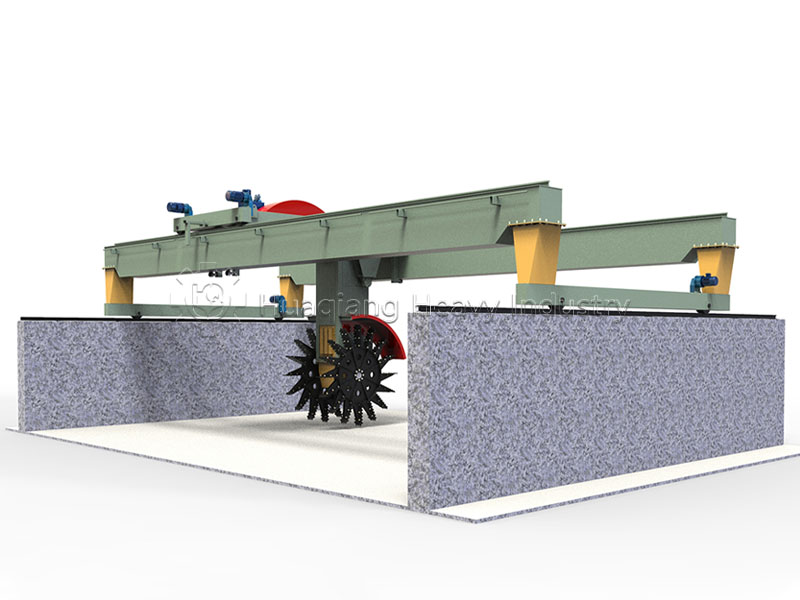In the modern organic fertilizer production sector, large wheel compost turners have become the core driving force in large-scale production lines. This innovative compost fertilizer machine plays an indispensable role throughout the entire production process, transforming organic waste into valuable organic fertilizer through its exceptional performance. As a key component among the equipments required for biofertilizer production, this advanced fertilizer machine ensures efficient aeration, optimal moisture control, and accelerated decomposition. Its robust design and operational capabilities make it essential for producing high-quality organic amendments that support sustainable agriculture and soil health.
This outstanding fertilizer machine plays a crucial role in the production line, perfectly connecting large-scale raw material processing with subsequent processing stages. Pretreated bulk materials are transported to the fermentation area via conveying equipment, stacked into large windrows, and then continuously turned and fermented by large wheel compost turners.
In organic fertilizer production lines with an annual output exceeding 100,000 tons, this advanced fertilizer production machine achieves continuous production through multi-windrow rotation operations: one windrow receives new materials, one undergoes high-temperature fermentation, and another undergoes cooling and maturation.
As an important component of the equipments required for biofertilizer production, large wheel compost turners also possess excellent production coordination capabilities. By adjusting turning speed and travel speed through electronic control systems, fermentation progress can be flexibly regulated according to front-end raw material supply rates and back-end granulator production capacity.
Large-scale compost turning machines are suitable for large-scale windrow fermentation. Compared with trough fermentation, they can increase site utilization by more than 30%, effectively reducing the land cost of the production line. They are particularly suitable for large-scale production bases with relatively abundant land resources, and provide a perfect solution for the large-scale and intensive development of organic fertilizer production.



